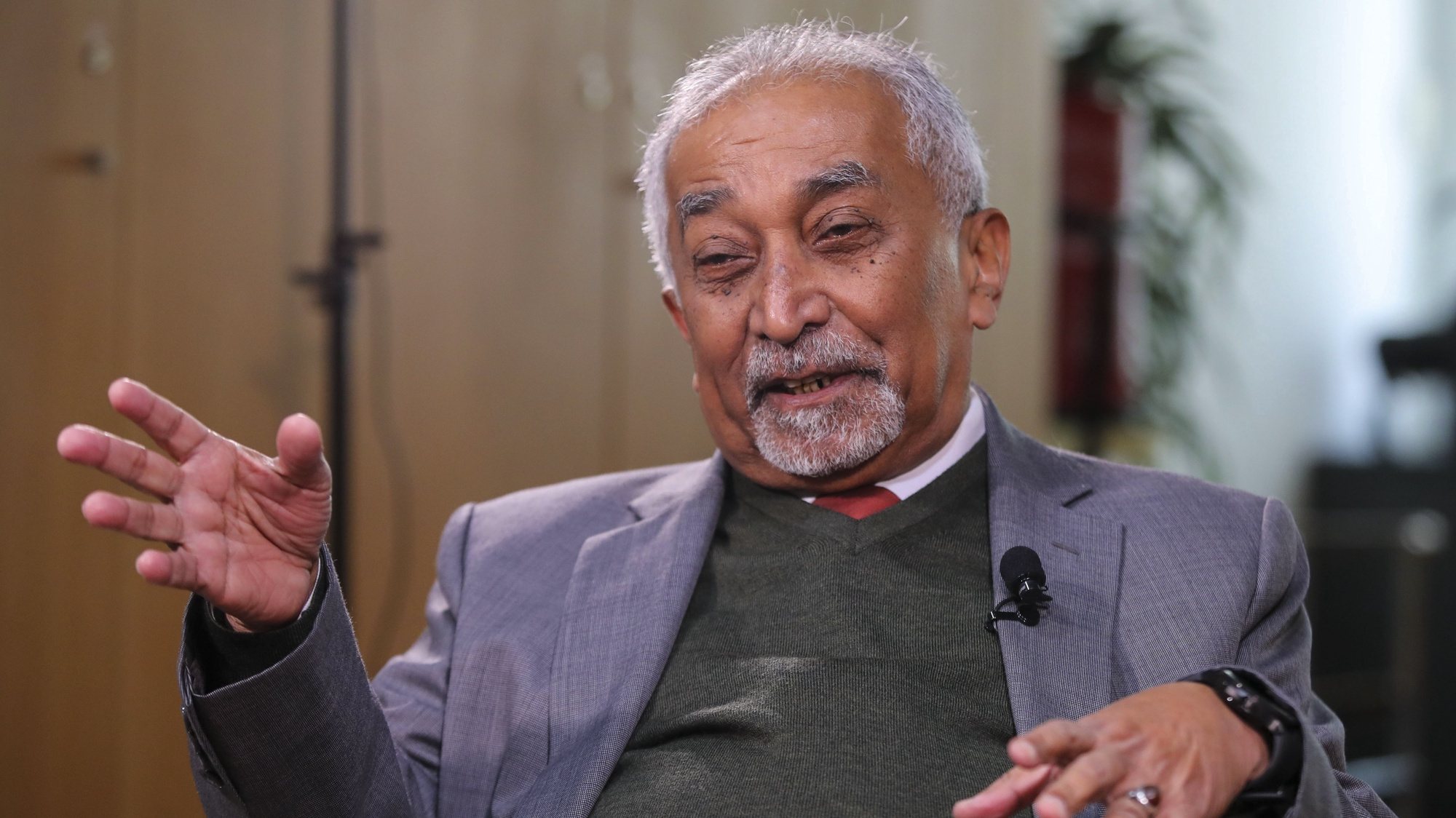The coordinator of the party that supports the Timorese government today proposed a new cooperative relationship between Portugal and Timor-Leste based on economic relations, citing the investment in the Figueira da Foz shipyards as an example. In an interview with Lusa in Lisbon, Mari Alkatiri explained that this has been the subject of conversations with Portuguese politicians, including the president of Portugal, Marcelo Rebelo de Sousa, who defends a multilateral relationship within the framework of the Community of Countries of Portuguese Language (CPLP). ). ).
The objective is “to help develop a more solid economic diplomacy between Portugal and Timor-Leste” and “to strengthen the CPLP”, explained Mari Alkatiri when commenting on the meeting with the Portuguese head of state.
And it was in this framework that Timor-Leste invests 12 million euros in the acquisition of 95% of the Figueira da Foz shipyardswhich entered into bankruptcy proceedings and whose practically only contract was the construction of the Haksolok ‘ferry’, which was to connect the Timorese capital, the island of Ataúro and the Oecussi enclave, in the west of the country.
The ship is already from Timor-Leste, “only 20 to 25% of the work remains to be completed”, but this project, financed by the Oecusse-Ambeno Special Administrative Region (which was led by Alkatiri), is part of what General Secretary Fretilin considers it a priority of the country’s income diversity.
It is a “bet on the future, a bet on Portugal, on Europe and with the PALOP (Portuguese-Speaking African Countries) and the CPLP as a priority and fundamental market.
The initial budget for the ship, in 2014, was 13.3 million euros and now this global investment in Figueira da Foz will have to be monetized with other projects, which “recover the shipyards and start generating additional income”, warned Alkatiri.
That “we know how to turn solidarity into mutually beneficial cooperation”, creating a “new stage” in the relationship between the two States.
“Solidarity had its role, but now relations between Timor-Leste and Portugal must take another course in terms of economic cooperation, political cooperation, cooperation in all technical areas, in the logic of training and education,” explained the party leader, admitting that the two countries have not yet managed to “turn this feeling of solidarity well into cooperation.”
“The relationship between Timor-Leste and Portugal cannot be seen as a bilateral relationship”, but rather “in the multilateral context that is the CPLP, looking at the multilateral context that each of the countries has” in their subregions.
The CPLP summit in Dili tried to introduce this variant of economic diplomacy, proposing “a summit for globalization” of the organization. “But after that, Brazil took over the CPLP and we all know that it was left for the calends,” he added.
One of Timor-Leste’s management challenges is to diversify the source of tax revenue, currently highly dependent on the Sovereign Fund, which comes from oil.
As currently defined, the days of income are numbered, 2030, and this worries Mari Alkatiri, who criticizes successive governments, some supported by Fretilin.
“I have always said that any dollar that comes out of the oil fund is a credit” that “must be managed from generation to generation”, keeping the initial funds, something that was not done, he admitted.
The Covid-19 pandemic also brought new challenges “in terms of diversifying the economy”, which must be “more circular”, “more sustainable” and more “resilient”, he considered.
The Haksolok purchase operation is one of the most controversial in recent years in Timor-Leste, provoking intense debates between successive governments and political parties and, even today, generating strong criticism of Mari Alkatiri and the Oecusse-Ambeno Special Administrative Region (RAEOA). ).
The contract for the construction of the “Haksolok” was signed with Atlanticeagle Shipbuilding in September 2014 and work began in 2015, but has stalled for several years.
The project was included in an audit by the Chamber of Accounts of projects in the Oecusse-Ambeno enclave in 2014 and 2015.
The initial delivery date was October 30, 2015, and on January 22, 2016 an addendum was made extending the deadline until November 15 of that year, and in August 2016 the deadline was postponed again.
Following a creditors’ meeting request, AtlanticEagle Shipbuilding had a Special Recovery Plan approved by 96%, with the favorable votes of the Treasury, Social Security and its largest creditor, precisely RAEOA.
Source: Observadora
